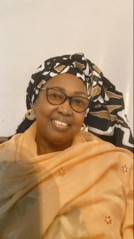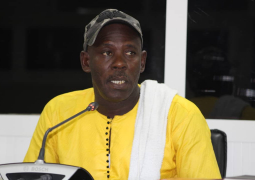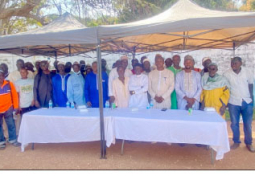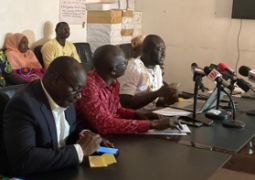
In her message, she emphasised that the country belongs to its citizens—not just the government or municipalities—and urged everyone to contribute to its development. Her advocacy centres on fostering collective responsibility, changing mindsets, and ensuring a cleaner and healthier environment for future generations.
Jainaba Jallow Njie reminds Gambians of a fundamental truth – that the country belongs to all its citizens. “As such, every individual has a role to play in its development and maintenance. “Our country, The Gambia, is ours,” she says. “It’s our duty to turn it into something we will all be proud of, with the government playing its part fully.”
However, Njie lamented the current state of The Gambia’s environment, where streets are littered with garbage, trees trimmed with branches left scattered, and old, rusty vehicles abandoned in public spaces. This situation, she argues, has become the new normal for many, perpetuating a cycle of negligence and poor sanitation.
Njie stressed that achieving a cleaner Gambia requires collective responsibility, a mindset shift, and active participation from all segments of society. “Good health and quality of life depend on a healthy environment,” she stated. Traditionally, cleaning tasks are seen as the responsibility of women. However, Njie challenged this notion, calling on men, elders, religious leaders, and community groups to take active roles in promoting cleanliness.
“Schools should also be actively involved, with competitions for the cleanest classrooms, school blocks, and overall schools within municipalities and nationwide. These events should be televised, broadcast on radio programmes, and reported in newspapers to create awareness and inspire participation,” she suggested.
Njie highlights that changing attitudes toward cleanliness cannot happen overnight. “It requires a sustained effort, year after year, to embed the culture of cleanliness in society. She advocates for expanding the scope of competitions to include markets, towns, and villages and reward those who excel and penalise those who fail to comply.
For this movement to succeed, Njie called on the government, municipalities, and various organisations to play their roles fully. This includes providing garbage trucks, organising regular cleaning exercises every two weeks, and ensuring strict enforcement of laws to penalise littering. “Funds collected from fines could be reinvested in prizes for cleanliness competitions, creating a cycle of accountability and reward.”
Njie draws inspiration from countries with efficient garbage disposal systems where citizens take pride in keeping their homes and streets clean. These nations, she said, demonstrate that with love for one’s country and respect for its laws, maintaining a clean environment is possible.
She concludes with a passionate plea: “Let us all become Gambians who love both their homes and their nation. Together, we can transform The Gambia into a clean and healthy place for everyone.”





